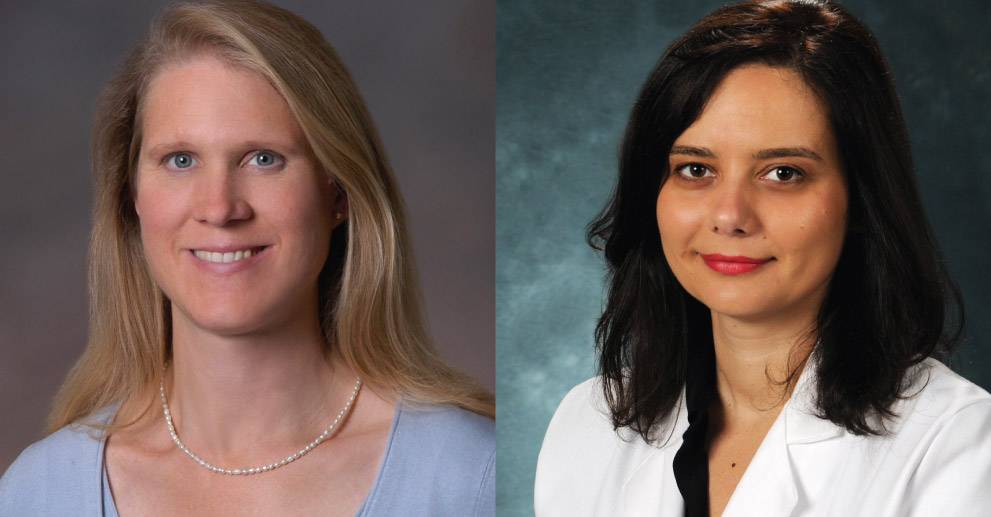Join the Focus On seminars email list
We’re bringing together two types of leaders in cancer research.
Event recording
Professor of Molecular and Medical Genetics
Co-Director, Brenden-Colson Center for Pancreatic Care, School of Medicine
Oregon Health & Science University
“Insights into the role of MYC in PDAC progression, metastasis, and therapy resistance”
Dr. Sears received her Bachelor’s degree in Biology from Reed College (1986), Portland Oregon. She received her PhD in Cell Biology from Vanderbilt University (1993), Nashville Tennessee, and conducted her post-doctoral studies at Duke University in the Genetics Department. Dr. Sears is a full professor in the Department of Molecular and Medical Genetics at Oregon Health & Science University. She is Co-Director of the Brenden-Colson Center for Pancreatic Care and a senior member in the Knight Cancer Institute. Dr. Sears has received funding from the National Institutes of Health, the Department of Defense, the Susan G. Komen Foundation, the Leukemia and Lymphoma Foundation, as well as several other private foundations. She has received both research and business innovation awards in the areas of cancer biology, therapeutics, and technology advancement.
Assistant Professor of Cancer Biology & Surgery
NCI-designated Sidney Kimmel Cancer Center
Thomas Jefferson University and Jefferson Health
“Stress Granules: a stress-adaptive mechanism in KRAS-driven pancreatic tumorigenesis”
Dr. Elda Grabocka received her Bachelor’s degree in Biology from Washington College. She completed her PhD in Molecular Pharmacology and Structural Biology at Thomas Jefferson University and her postdoctoral studies at the NYU Langone Medical Center. Dr. Grabocka is currently an Assistant Professor in the Departments of Cancer Biology and Surgery at the Sidney Kimmel Cancer at Thomas Jefferson University. Her research investigates pancreatic cancer’s ability to hijack the mechanisms by which cells adapt to stress stimuli and has uncovered that mutant KRAS promotes the assembly of stress-resistance organelles called stress granules. Ratcheting up this mechanism enables pancreatic tumors to grow under adverse conditions and enhance their resistance to chemotherapy. Dr. Grabocka has received several awards including a V Foundation Scholar Award, a Margaret Q. Landenberger Foundation Award, and a R37 Early-Stage Investigator MERIT Award from the National Cancer Institute
